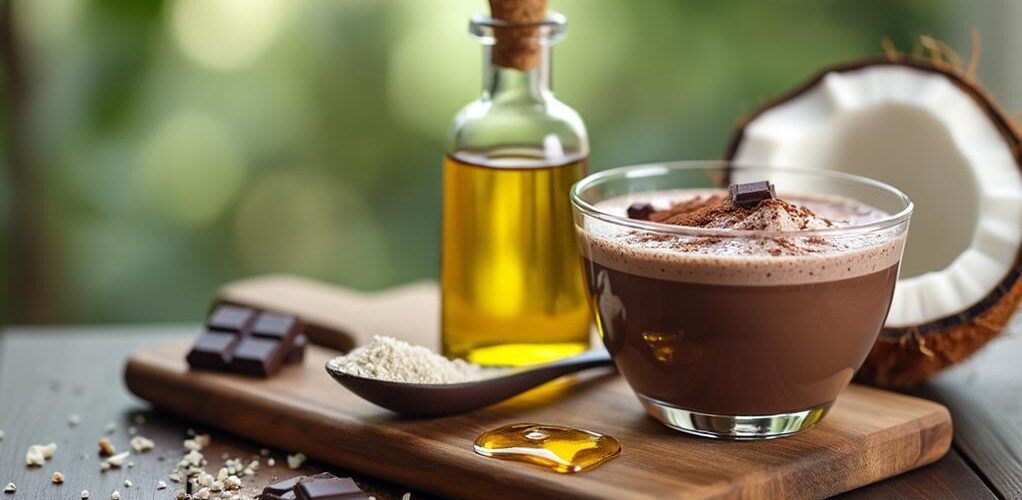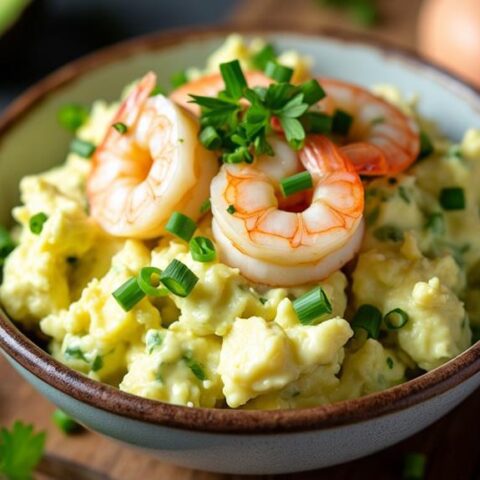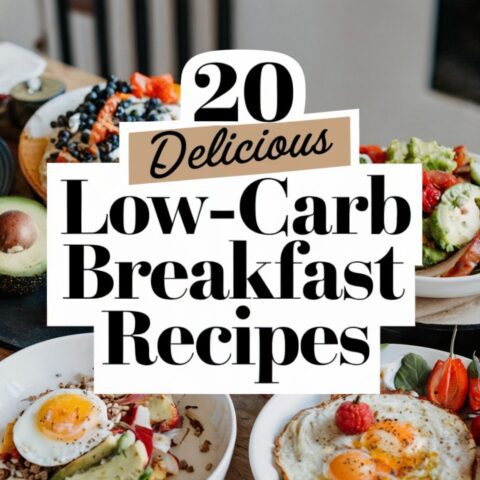
The top three essential supplements for a keto diet are electrolytes, MCT oil, and fiber. Electrolytes are crucial, helping to alleviate the "keto flu" symptoms by replenishing sodium, potassium, and magnesium levels. MCT oil enhances energy through rapid ketone production, supports appetite suppression, and boosts cognitive function. For digestive health, fiber supplementation is key, aiming for a daily intake of 25-31 grams to maintain regularity, lower cholesterol, and reduce heart disease risks. Integrating these supplements into your keto regimen can facilitate smoother adaptation and improve overall health, potentially offering greater insights into optimizing your keto experience.
Key Takeaways
- Electrolyte supplements help prevent "keto flu" by supporting essential sodium, potassium, and magnesium intake.
- MCT oil boosts ketone production and energy, assisting with appetite suppression and cognitive function.
- Fiber supplements, like psyllium husk, aid digestion and help achieve daily fiber intake goals on a keto diet.
- Starting with small doses of MCT oil helps assess tolerance and avoid gastrointestinal discomfort.
- Adequate water intake is crucial when supplementing with fiber to maintain digestive health.
Essential Electrolytes
Kicking off a ketogenic diet often brings about noticeable changes in the body's electrolyte balance, necessitating a closer look at essential electrolytes like sodium, potassium, and magnesium.
These minerals are fundamental for regulating fluid balance, muscle contractions, and nerve function, all of which can be disrupted as the body adjusts to low carbohydrate intake. The initial phases of a keto diet lead to increased water loss due to glycogen depletion, placing dieters at heightened risk for electrolyte imbalances.
Symptoms such as headaches, muscle cramps, and fatigue, often referred to as "keto flu," can be mitigated through strategic hydration strategies and electrolyte supplementation. To further ease the adjustment to ketosis, monitoring electrolyte intake is imperative as it helps prevent muscle cramps and headaches, enhancing overall energy.
To maintain electrolyte balance, it is recommended to increase sodium intake to 3,000-5,000 mg daily, while potassium and magnesium intakes should meet 2,500-3,000 mg and 310-420 mg, respectively.
Incorporating foods rich in electrolytes, such as avocados, leafy greens, and nuts, along with broth, can help address deficiencies. Additionally, electrolyte supplements can prove beneficial, especially during the early adjustment weeks, to combat "keto flu" and enhance energy levels.
These measures facilitate a smoother changeover to ketosis, supporting overall health and dietary success.
MCT Oil Benefits
Renowned for its rapid absorption and conversion into ketones, MCT oil serves as a potent energy source for both the brain and muscles, making it a valuable addition to a ketogenic diet. Derived mainly from coconut and palm kernel oils, MCT oil enhances ketone levels in the bloodstream, thereby promoting increased fat burning and supporting weight loss goals. This is particularly beneficial for those adhering to a low-carb diet, as studies have indicated that MCT oil may assist in appetite suppression. This appetite suppression can help individuals adhere to their dietary plans more effectively by facilitating better calorie control.
| Benefit | Mechanism | Outcome |
|---|---|---|
| Rapid Energy Source | Converts to ketones quickly | Enhanced brain and muscle energy |
| Appetite Suppression | Reduces hunger signals | Better calorie control |
| Cognitive Support | Improves ketone availability | Enhanced mental clarity |
While a typical serving size ranges from 1 to 2 tablespoons (15-30 mL), it is advisable to start with smaller doses to gauge personal tolerance and avoid gastrointestinal discomfort. Additionally, MCT oil has been linked to improved cognitive function and mental clarity, attributes that make it a favored supplement among ketogenic and low-carb practitioners.
Fiber Supplementation
Incorporating fiber supplementation into a ketogenic diet can be a significant strategy in maintaining ideal digestive health and preventing constipation, a common challenge faced by those adhering to low-carb regimens. On a keto diet, achieving the recommended daily fiber intake of 25-31 grams can be difficult due to limited carbohydrate consumption. This intake is essential for promoting digestive health and regularity.
Fiber sources such as avocados, nuts, seeds, and cruciferous vegetables like broccoli and cauliflower are keto-friendly options that provide necessary roughage without exceeding carb limits. Additionally, maintaining an electrolyte balance is important to prevent symptoms like keto flu, further supporting overall well-being on a ketogenic diet.
However, dietary sources might not always suffice, especially for individuals with specific dietary restrictions or preferences. In such cases, fiber supplements like psyllium husk and inulin become invaluable. These supplements can bridge the gap in achieving daily fiber goals, thereby ensuring smoother bowel movements and reduced gastrointestinal discomfort.
It is vital, though, to pair fiber supplementation with adequate water intake to facilitate digestion and prevent issues like bloating or cramps.
Beyond digestive health, regular fiber supplementation has been linked to benefits such as maintaining low cholesterol levels and potentially reducing the risk of heart disease and colorectal cancer, underscoring its multifaceted role in holistic health.
Frequently Asked Questions
What Supplements Do I Need on a Keto Diet?
On a keto diet, consider supplementing with magnesium to support bodily functions, MCT oil for energy, and omega-3s for inflammation. Additionally, maintain electrolyte balance and consider keto protein supplements to meet your nutritional needs.
What Vitamins Are You Lacking on Keto Diet?
The keto diet often results in micronutrient deficiencies, particularly in vitamins D, A, C, E, and folic acid, affecting electrolyte balance. These deficiencies can impact muscle function, bone health, and immunity, necessitating careful dietary management and supplementation.
Do You Need a Multivitamin on Keto?
Keto nutrient absorption may be insufficient for certain vitamins and minerals, making multivitamin benefits significant. Supplementation can address potential deficiencies, enhancing overall health. An evidence-based approach recommends consulting a healthcare provider to tailor individual needs on a keto diet.
Which Keto Macro Is Most Important?
In the context of keto macro importance, fat intake significance is paramount. Fat is the primary energy source, enabling ketosis. Proper fat consumption guarantees energy sufficiency, while improper macronutrient balance disrupts ketosis, underscoring fat's critical role in ketogenic success.
Conclusion
In summary, the integration of essential electrolytes, MCT oil, and fiber supplements can greatly enhance the effectiveness and sustainability of a ketogenic diet. Electrolytes are vital for maintaining hydration and preventing imbalances often associated with carbohydrate restriction. MCT oil provides a readily available energy source and may aid in increasing ketone levels. Fiber supplementation supports digestive health and aids in maintaining satiety. Together, these supplements can address common challenges faced by individuals adhering to a ketogenic lifestyle.










No Comments